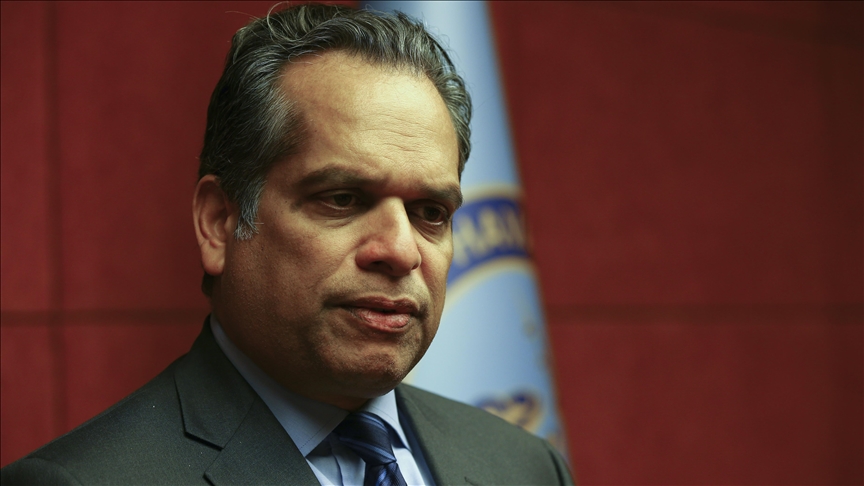UN official urges greater support for Syria's political transition, humanitarian response
'Syria continues to navigate a challenging but crucial opportunity to build a better future,' Ramesh Rajasingham says

HAMILTON, Canada
Senior UN officials urged the international community on Wednesday to step up support for Syria's recovery and political transition, highlighting opportunities for development and reconstruction alongside continued humanitarian needs.
"Syria continues to navigate a challenging but crucial opportunity to build a better future," Ramesh Rajasingham, director of the UN Office for the Coordination of Humanitarian Affairs' Coordination Division, told the Security Council. He said the country remains "one of the world's largest humanitarian crises, affecting more than 70% of the population."
Saying that explosive ordnance continues to take a deadly toll, he reported that last week alone, 16 incidents were recorded across the country, killing three people and injuring 19 others, including six children.
Rajasingham added that about 7 million people remain displaced internally, including 1.3 million in camps or similar sites, and that over 2.4 million children remain out of school.
Despite funding challenges, UN operations are reaching "3.4 million people on average each month across Syria – 25% more than the same period last year," he said.
He called for "de-escalating ongoing flashpoints and preventing new ones," as well as additional funding and tangible investment in reconstruction to support a Syrian-led recovery.
Najat Rochdi, the UN's deputy special envoy for Syria, also emphasized the importance of inclusive political participation, particularly for women.
Marking the 25th anniversary of Security Council Resolution 1325, she said it "reasserts the central role of women in peacemaking, demands their equal participation, and insists on their protection from gender-based violence in conflict."
Rochdi emphasized that Syrian women "remain invested and engaged in the political transition" and "expect and demand future electoral processes designed to protect their legitimate right to participate."
She urged authorities and civil society "to define an inclusive pathway for holding future elections," as she called for economic support to overcome the "staggering consequences of fourteen years of conflict and over half a century of dictatorship."
Warning against external interference, she stressed that "ongoing Israeli territorial incursions into southern Syria must stop. We call for the full respect for Syria's sovereignty, independence, and territorial integrity."
Rochdi also urged that remaining sanctions be lifted "at a larger and quicker scale to give this transition a chance to succeed."
Both officials emphasized that the UN is prepared to support the Syrian authorities and people as they strive toward a safe, inclusive, and prosperous future.
The Syrian civil war ended last December after Bashar al-Assad, Syria’s leader for nearly 25 years, fled to Russia, ending the Ba'ath Party regime, which had been in power since 1963.
After the establishment of a new government led by President Ahmad al-Sharaa, Syria has pursued political and economic reforms while promoting social cohesion and expanding cooperation with regional and international partners.
Anadolu Agency website contains only a portion of the news stories offered to subscribers in the AA News Broadcasting System (HAS), and in summarized form. Please contact us for subscription options.







